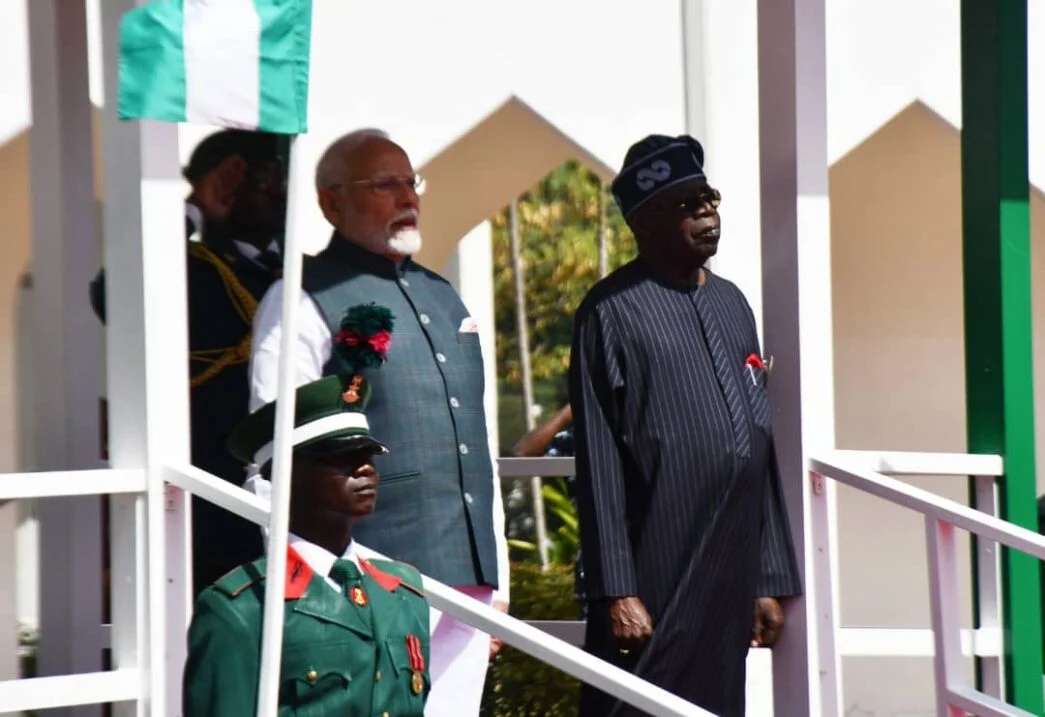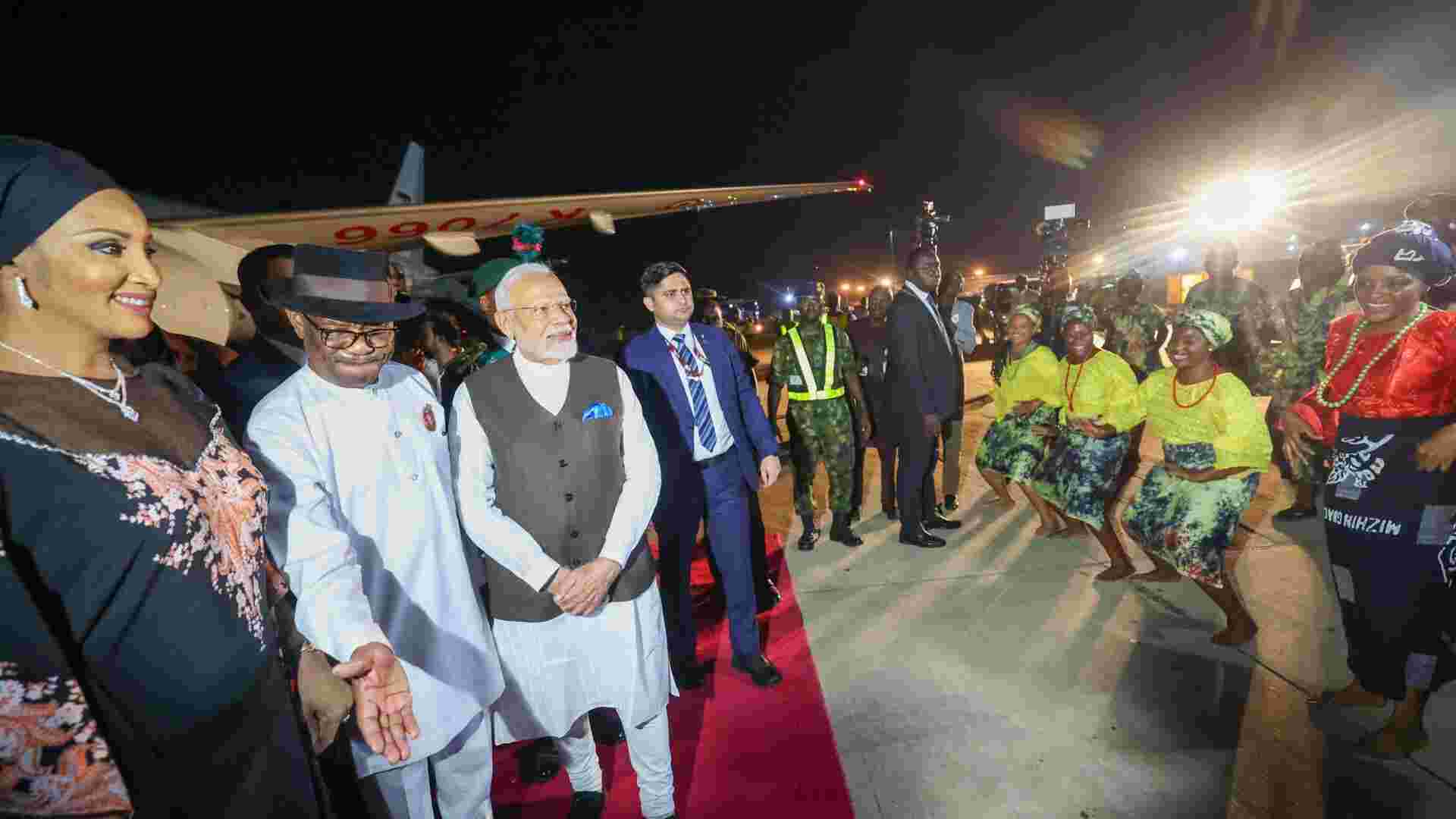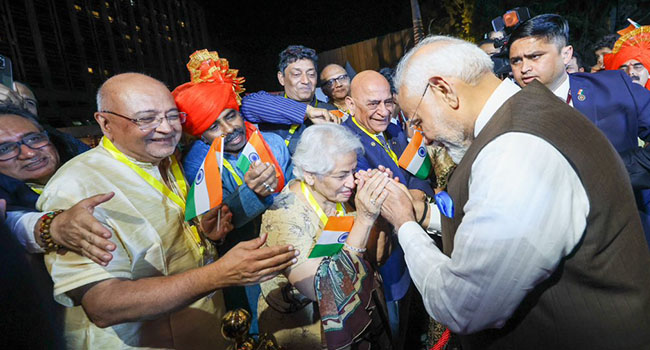
The 2025 Nigeria-India partnership will mark a transformative milestone in international relations. Bolstered by the visionary leadership of President Tinubu and Prime Minister Modi, this collaboration promises significant economic growth for Nigeria and Africa at large. From trade and investment to energy, technology, and security, the partnership underscores a commitment to mutual advancement. With strategic initiatives like local currency settlements and energy cooperation, Nigeria is poised for sustained development, setting a benchmark for South-South cooperation.

President Tinubu to Indian Investors: Do Not Procrastinate As Nigeria Offers The Best Return On Investment
The strategic partnership is poised to significantly bolster Nigeria’s economy, the largest in Africa and contribute to the economic advancement of the entire continent. This collaboration, strengthened by the rapport between President Bola Ahmed Tinubu and Prime Minister Narendra Modi, highlights a shared commitment to mutual growth and development.
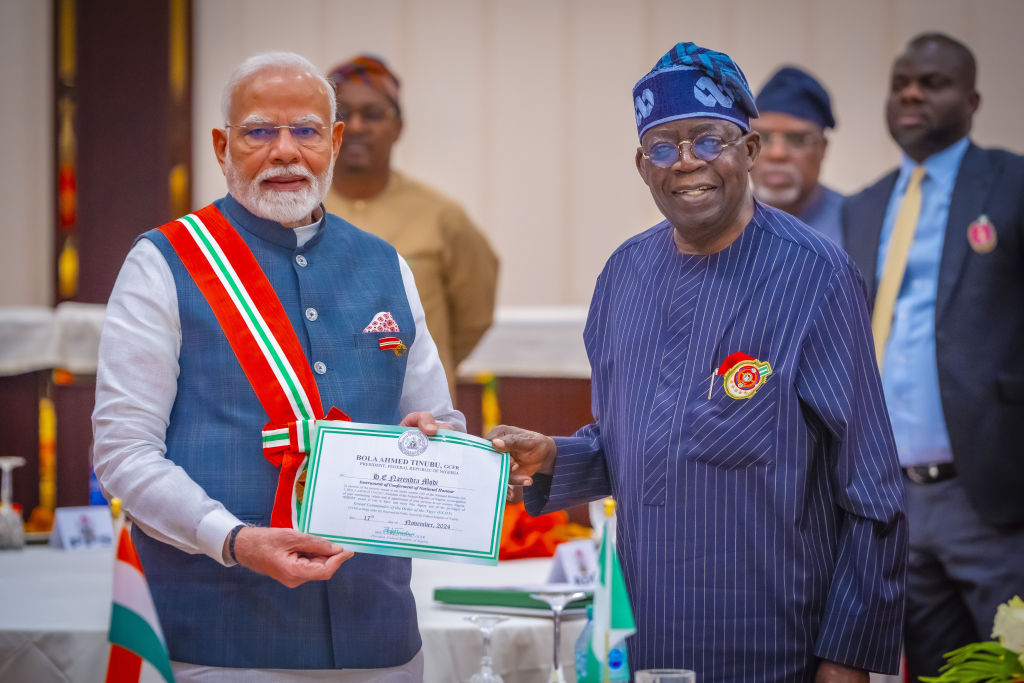
Nigeria and India have enjoyed a robust relationship since establishing diplomatic ties in 1958. Over the years, this bond has evolved into a strategic partnership encompassing trade, investment, defense, and cultural exchanges. In 2024, this partnership reached new heights with reciprocal state visits by both leaders.

President Tinubu and Modi in India during Tinubu’s state visit to India
In September 2024, President Tinubu visited India, where he secured nearly $14 billion in investment pledges from Indian investors, including a $3 billion commitment from Jindal Steel and Power to develop Nigeria’s steel sector.
This visit also facilitated discussions on an economic cooperation pact aimed at enhancing bilateral trade and investment.
In November 2024, Prime Minister Modi made a historic visit to Nigeria the first by an Indian premier in 17 years. During this visit, both leaders pledged to deepen their strategic partnership, focusing on areas such as defense, energy, technology, trade, and development. They also agreed to enhance cooperation in maritime security, intelligence sharing, and counter-terrorism efforts, particularly in the Gulf of Guinea and the Indian Ocean.
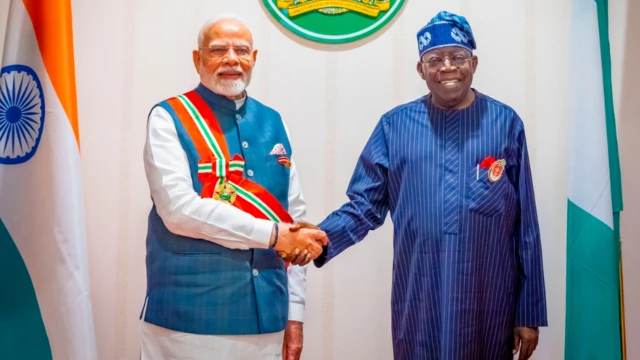
President Tinubu and Prime Minister Modi in Nigeria during Modi’s state visit to Nigeria
The economic Implications of this relationship for Nigeria is that the reinforced partnership between the two countries is set to yield substantial economic benefits for Nigeria.
First will be trade enhancement considering India as Nigeria’s largest trading partner, with bilateral trade estimated at $14.9 billion in 2022.
However, establishment of a local currency settlement system, allowing transactions in Nigerian Naira and Indian Rupee, is expected to further boost trade by reducing dependency on foreign exchange and lowering transaction costs.
Secondly, the Investment Inflow of the $14 billion in investment pledges from Indian companies are directed towards critical sectors such as steel, power, renewable energy, and agriculture. These investments are anticipated to create jobs, enhance industrial capacity, and stimulate economic growth.
Thirdly, Energy Cooperation, Nigeria being rich in crude oil and natural gas, supplies over 8% of India’s crude oil imports, making energy a cornerstone of both countries economic relations. Collaborations in this sector are expected to lead to technological transfers, infrastructure development, and increased revenue for Nigeria.

One of Nigeria’s oil rigs
Pharmaceutical Industry Development: India’s expertise in pharmaceuticals presents an opportunity for Nigeria to develop its local pharmaceutical industry. The Nigerian government aims to achieve 75% local manufacturing of essential medicines by 2025, reducing dependency on imports and improving healthcare outcomes.
Fourthly, Infrastructure Development, with Nigeria’s construction sector projected to grow annually by 3.2% between 2022 and 2025, Indian investments in infrastructure projects, including roads, railways, and housing, are expected to play a significant role in this expansion.

Infrastructure development ongoing in Nigeria
While in education and Technological Collaboration, the partnership includes initiatives in education and technology, with many Nigerian students studying in India and collaborations between universities. This exchange is poised to enhance Nigeria’s human capital development, fostering innovation and entrepreneurship.
The Nigeria-India partnership extends its benefits beyond Nigeria, positively influencing the broader African continent, as Africa’s largest economy, Nigeria’s economic advancement has a ripple effect across the continent. Enhanced trade and investment between Nigeria and India can stimulate regional markets, promote economic integration, and attract further foreign direct investment into Africa.
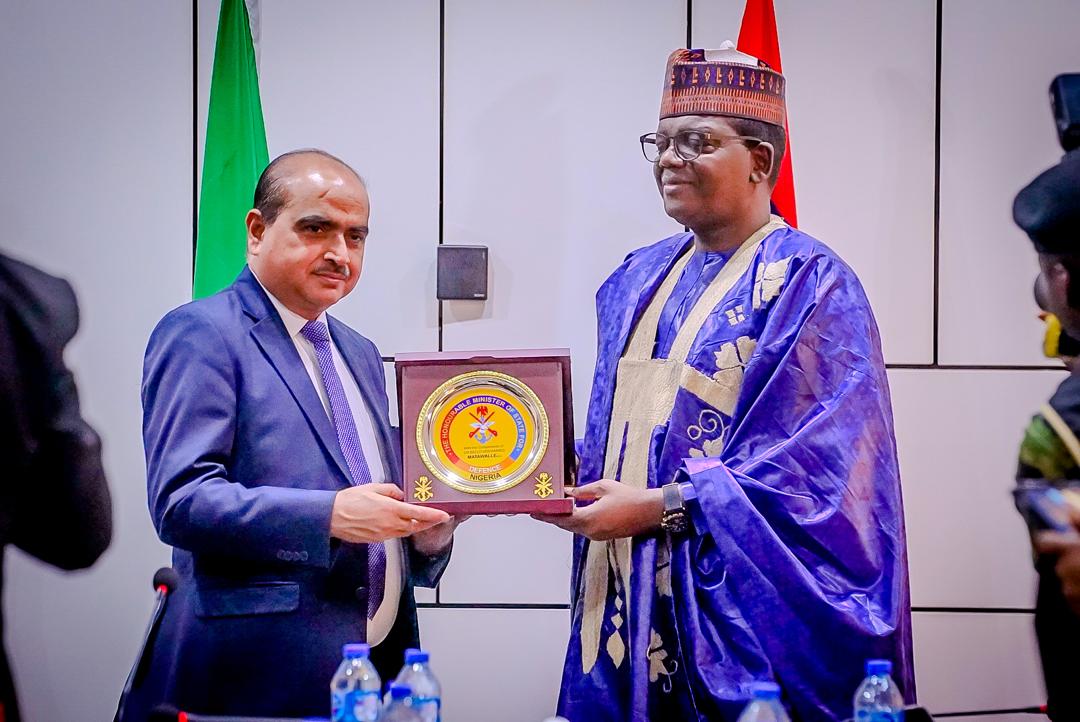
DEFENCE COOPERATION: NIGERIA AND INDIA TO STRENGTHEN TIES
While the collaboration in maritime security and counter-terrorism sets a precedent for regional security initiatives, contributing to the stability necessary for economic development in West Africa and beyond.
Infact, both nations have committed to amplifying the concerns of developing countries on the global stage. The united stance can influence international policies in favour of the Global South, promoting equitable economic development.

Nigerian, Indian Navies Joint Operational Sea Exercise
It is worthy of note that the proactive engagement between President Tinubu and Prime Minister Modi has been instrumental in revitalizing the Nigeria-India partnership. Their mutual visits and the agreements forged demonstrate a shared vision for economic prosperity and development. President Tinubu’s efforts to attract foreign investment and diversify Nigeria’s economy, coupled with Prime Minister Modi’s commitment to strengthening ties with African nations, exemplify leadership dedicated to mutual advancement.

Nigerian President Bola Ahmed Tinubu received PM Modi at Abuja
The 2025 Nigeria-India partnership represents a significant milestone in international relations, with the potential to transform Nigeria’s economy and contribute to Africa’s economic landscape. Through strategic collaboration in trade, investment, security, and development, both nations are poised to achieve shared prosperity, setting a benchmark for South-South cooperation in the 21st century.
Photo speaks
